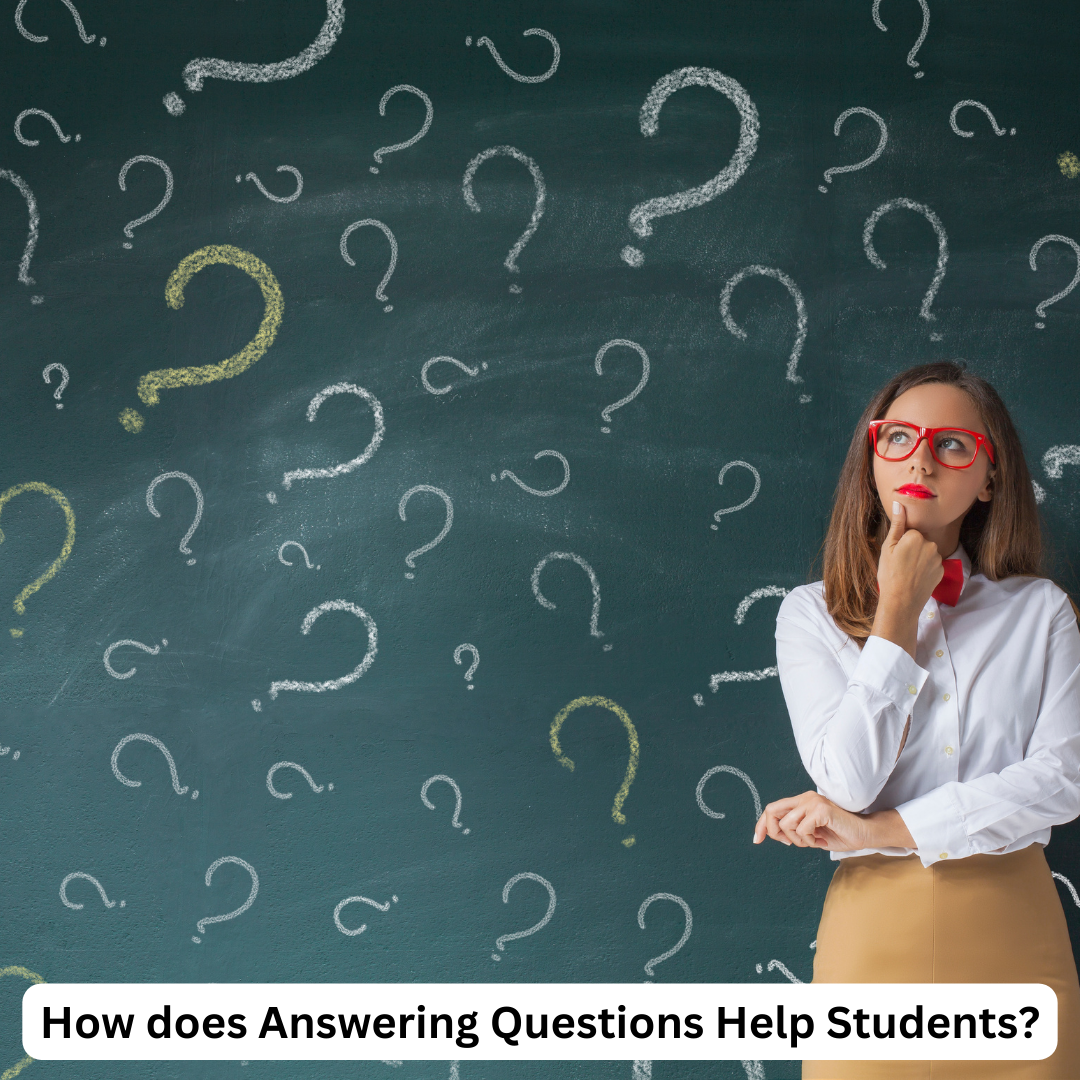In this article we are going to discuss How Answering Questions helps Students? Answering questions is a fundamental practice in the educational process, offering numerous benefits that directly impact a student’s academic and personal development. This article explores the advantages of this practice in a structured and concise manner.
How does Answering Questions Help Students?
In this article, we will explore how Answering Questions Help Students and its impact on personal and professional development.
1. Reinforcement of Learning
Answering questions helps students consolidate and reinforce knowledge acquired from lectures, readings, and discussions. It enables them to recall facts, figures, and concepts, thereby transferring information from short-term to long-term memory. The act of retrieval itself enhances memory consolidation and retention, making the information more accessible for future use.
2. Identification of Gaps in Knowledge
When students attempt to answer questions, they can easily identify areas where their understanding is incomplete or inaccurate. This recognition is crucial because it allows students to seek further clarification or additional resources, thus filling those gaps. It also prompts educators to tailor their teaching strategies to address these weaknesses, ensuring a more effective learning experience.
Also Check: 10 Best Websites to Answer Questions
3. Development of Critical Thinking
The process of answering questions often requires students to apply logical reasoning and analytical skills. They must not only recall information but also synthesise it, evaluate its relevance, and apply it to different contexts or scenarios. This practice enhances their critical thinking capabilities, which are essential for academic success and informed decision-making in real-life situations.
4. Improvement in Communication Skills
Regularly articulating answers helps students improve their verbal and written communication skills. They learn to organise their thoughts, structure their responses, and present their ideas clearly and effectively. These skills are valuable not only in academic settings but also in professional and personal interactions.
5. Preparation for Assessments
Answering questions is a practical way for students to prepare for quizzes, tests, and examinations. The act of formulating responses to potential questions can serve as an effective revision tool, making them more confident and better prepared when facing actual assessments.
6. Encouragement of Engagement and Participation
The opportunity to answer questions can increase student engagement in the classroom. It encourages active participation rather than passive listening, making the learning environment more dynamic and interactive. Students who are actively engaged are more likely to develop motivation and interest in the subject matter, which in turn leads to higher academic achievement.
Also Check: Top Websites in the World
7. Fostering a Growth Mindset
Regular interaction through question and answer sessions can help foster a growth mindset among students. They learn that intelligence and abilities can be developed through dedication and hard work. Encountering difficult questions and learning to solve them enhances their resilience and perseverance, traits that are crucial for lifelong learning.
8. Promotion of Peer Learning
When students answer questions in a group setting, it promotes peer learning. They can learn from each other’s insights and perspectives, which can be different from their own. This exchange not only enhances their understanding but also fosters a sense of community and collaboration within the classroom.
9. Enhancement of Listening Skills
The need to answer questions accurately requires good listening skills. Students must pay attention to the details of the question to provide an appropriate response. This practice enhances their ability to listen actively, a skill that is useful in all areas of life.
10. Boost in Confidence
Successfully answering questions can boost a student’s confidence. With each correct response, they feel more competent and self-assured, which can increase their willingness to take on new challenges and participate more actively in various learning activities.
Conclusion
The practice of answering questions is a powerful educational tool that provides numerous benefits. It not only aids in knowledge retention and gap identification but also develops critical thinking, communication, and interpersonal skills. By fostering engagement, encouraging a growth mindset, and promoting peer learning, this practice significantly enhances the overall educational experience for students. So now I hope you understand how Answering Questions Help Students.






